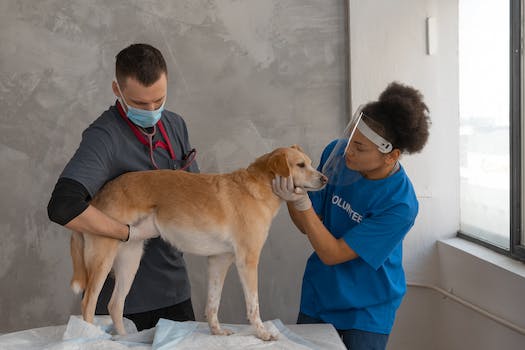

-
Table of Contents
"Keeping your cat clean made easy with these essential tips!"
Introduction
Keeping your cat clean is an essential part of responsible pet ownership. Regular grooming not only helps maintain your cat's hygiene but also promotes their overall health and well-being. In this article, we will provide you with some essential tips for keeping your cat clean.
The Importance of Regular Grooming for Your Cat
Cats are known for their cleanliness and grooming habits. They spend a significant amount of time each day grooming themselves, using their tongues to clean their fur and keep it in good condition. However, despite their best efforts, cats still require regular grooming from their owners to ensure they stay clean and healthy.
Regular grooming is essential for cats for several reasons. Firstly, it helps to prevent matting and tangling of their fur. Cats have a dense coat that can easily become matted if not properly cared for. Mats can be uncomfortable for cats and can even lead to skin infections if left untreated. Regular grooming, including brushing and combing, helps to prevent mats from forming and keeps the cat's fur in good condition.
Grooming also helps to reduce shedding. Cats are known for their shedding, especially during certain times of the year. Regular brushing helps to remove loose hair from the cat's coat, reducing the amount of hair that ends up on your furniture and clothes. It also helps to prevent hairballs, which can be a common issue for cats. When cats groom themselves, they ingest a significant amount of hair, which can accumulate in their digestive system and form hairballs. Regular brushing helps to remove loose hair before the cat has a chance to ingest it, reducing the risk of hairballs.
In addition to preventing matting and shedding, regular grooming also allows you to check for any skin issues or abnormalities. During the grooming process, you can inspect your cat's skin for any signs of irritation, redness, or sores. You can also check for fleas, ticks, or other parasites that may be hiding in your cat's fur. Early detection of any skin issues or parasites allows you to address them promptly and prevent them from becoming more serious problems.
Furthermore, grooming provides an opportunity for bonding with your cat. Many cats enjoy being groomed and find it relaxing. It can be a calming and enjoyable experience for both you and your cat. Use this time to talk to your cat in a soothing voice and give them gentle strokes. This helps to strengthen the bond between you and your feline companion.
When it comes to grooming your cat, there are a few essential tips to keep in mind. Firstly, choose the right grooming tools for your cat's coat type. Long-haired cats require different brushes and combs than short-haired cats. Consult with your veterinarian or a professional groomer to determine the best tools for your cat.
Secondly, start grooming your cat from a young age to get them used to the process. Cats are more likely to tolerate grooming if they have been exposed to it from a young age. Make grooming a positive experience by offering treats or praise during and after the grooming session.
Lastly, be gentle and patient when grooming your cat. Cats can be sensitive to touch, so it's important to handle them with care. Take breaks if your cat becomes stressed or agitated, and never force them to endure a grooming session if they are not comfortable.
In conclusion, regular grooming is essential for keeping your cat clean and healthy. It helps to prevent matting, reduce shedding, and allows you to check for any skin issues or parasites. Grooming also provides an opportunity for bonding with your cat. By following these essential tips and making grooming a regular part of your cat's routine, you can ensure that your feline friend stays clean and happy.
Effective Ways to Keep Your Cat's Coat Shiny and Healthy

Cats are known for their cleanliness and grooming habits, but that doesn't mean they don't need a little help from their owners to keep their coats shiny and healthy. Regular grooming is essential for maintaining your cat's overall well-being and preventing common issues such as matting, shedding, and skin problems. In this article, we will discuss some effective ways to keep your cat's coat in top shape.
First and foremost, regular brushing is key to maintaining a healthy coat for your feline friend. Brushing not only helps to remove loose hair and prevent matting, but it also stimulates the skin and distributes natural oils, resulting in a shiny and healthy coat. The frequency of brushing depends on your cat's breed and coat length. Long-haired cats may require daily brushing, while short-haired cats can be brushed a few times a week. Make sure to use a brush or comb suitable for your cat's coat type to avoid causing any discomfort.
In addition to regular brushing, providing a balanced and nutritious diet is crucial for your cat's coat health. A diet rich in high-quality protein, essential fatty acids, and vitamins will promote healthy skin and a shiny coat. Consult with your veterinarian to determine the best diet for your cat's specific needs. It's also important to ensure that your cat has access to fresh water at all times to stay hydrated, as dehydration can affect the condition of their coat.
Another important aspect of keeping your cat's coat clean and healthy is regular bathing. While cats are generally self-groomers and may not require frequent baths, occasional bathing can help remove dirt, debris, and excess oils from their fur. Use a cat-specific shampoo that is gentle on their skin and follow the instructions carefully. It's important to note that not all cats enjoy being bathed, so it's essential to introduce them to the process gradually and make it a positive experience.
In addition to brushing, diet, and bathing, it's essential to keep an eye out for any signs of skin problems or parasites. Regularly check your cat's skin for any redness, sores, or signs of irritation. Fleas, ticks, and mites can also cause skin issues, so make sure to use appropriate preventive measures recommended by your veterinarian. If you notice any abnormalities, consult with your vet for proper diagnosis and treatment.
Lastly, maintaining a clean environment is crucial for your cat's overall health and coat condition. Regularly clean their bedding, litter box, and any areas they frequently spend time in. This will help prevent the buildup of dirt, bacteria, and allergens that can affect their coat and skin. Additionally, providing your cat with a scratching post or mat will help them naturally remove dead skin cells and keep their claws healthy.
In conclusion, keeping your cat's coat clean and healthy requires regular grooming, a balanced diet, occasional bathing, and a clean environment. By following these essential tips, you can ensure that your feline friend's coat remains shiny, healthy, and free from common issues. Remember to consult with your veterinarian for personalized advice and recommendations based on your cat's specific needs. With proper care and attention, your cat will have a coat that is the envy of all other felines.
Essential Tips for Maintaining a Clean and Odor-Free Litter Box
Cats are known for their cleanliness, and as a cat owner, it is important to ensure that your furry friend's environment is clean and odor-free. One of the key areas to focus on is the litter box. A clean and well-maintained litter box not only keeps your cat happy and healthy but also prevents unpleasant odors from permeating your home. Here are some essential tips for maintaining a clean and odor-free litter box.
First and foremost, choose the right type of litter for your cat. There are various options available, including clay, clumping, and natural litters. Each type has its own advantages and disadvantages, so it's important to consider your cat's preferences and any specific needs they may have. Some cats prefer a certain texture or scent, while others may have allergies or sensitivities that require a specific type of litter.
Once you have chosen the right litter, it's important to keep the litter box clean. Scooping the litter box daily is crucial to prevent the buildup of waste and odor. Invest in a good quality litter scoop that allows you to easily remove clumps and solid waste. Remember to dispose of the waste in a sealed bag and place it in an appropriate trash bin.
In addition to daily scooping, it is recommended to completely change the litter and clean the litter box at least once a week. Empty the litter box into a trash bag and wash it thoroughly with mild soap and water. Avoid using harsh chemicals or strong-smelling cleaners, as these can be off-putting to your cat. Rinse the litter box thoroughly and allow it to dry completely before adding fresh litter.
To further control odors, consider using a litter box deodorizer. These products are designed to neutralize odors and keep the litter box smelling fresh. Be sure to choose a deodorizer that is safe for cats and follow the instructions for application. Some deodorizers can be sprinkled directly onto the litter, while others may require mixing with the litter or placing in a separate container within the litter box.
Proper placement of the litter box is also important. Cats prefer privacy when using the litter box, so choose a quiet and secluded area of your home. Avoid placing the litter box near their food and water bowls, as cats prefer to keep these areas separate. Additionally, make sure the litter box is easily accessible for your cat, especially if they are older or have mobility issues.
Regularly monitoring your cat's litter box habits is essential for maintaining a clean and odor-free environment. Changes in litter box behavior can indicate underlying health issues, such as urinary tract infections or digestive problems. If you notice any changes in your cat's litter box habits, consult with your veterinarian for further evaluation and guidance.
In conclusion, maintaining a clean and odor-free litter box is essential for the well-being of your cat and the overall cleanliness of your home. Choose the right type of litter, scoop daily, and clean the litter box regularly. Consider using a litter box deodorizer and ensure proper placement of the litter box. By following these essential tips, you can provide a clean and comfortable environment for your cat while keeping unpleasant odors at bay.
Q&A
1. How often should I groom my cat?
Regular grooming is recommended for cats, ideally on a daily basis or at least a few times a week.
2. What are some essential grooming tools for cats?
Some essential grooming tools for cats include a cat brush or comb, cat-friendly shampoo, nail clippers, and ear cleaning solution.
3. How can I keep my cat's litter box clean?
To keep your cat's litter box clean, scoop it daily to remove waste, change the litter regularly, and clean the box with mild soap and water on a weekly basis.
Conclusion
In conclusion, keeping your cat clean is essential for their overall health and well-being. Regular grooming, including brushing their fur, trimming their nails, and cleaning their ears, is important to prevent matting, infections, and other health issues. Additionally, maintaining a clean litter box and providing a balanced diet can help prevent odors and keep your cat's coat and skin healthy. Lastly, regular veterinary check-ups and vaccinations are crucial for maintaining your cat's cleanliness and preventing any potential health problems. By following these essential tips, you can ensure that your cat stays clean and healthy.












